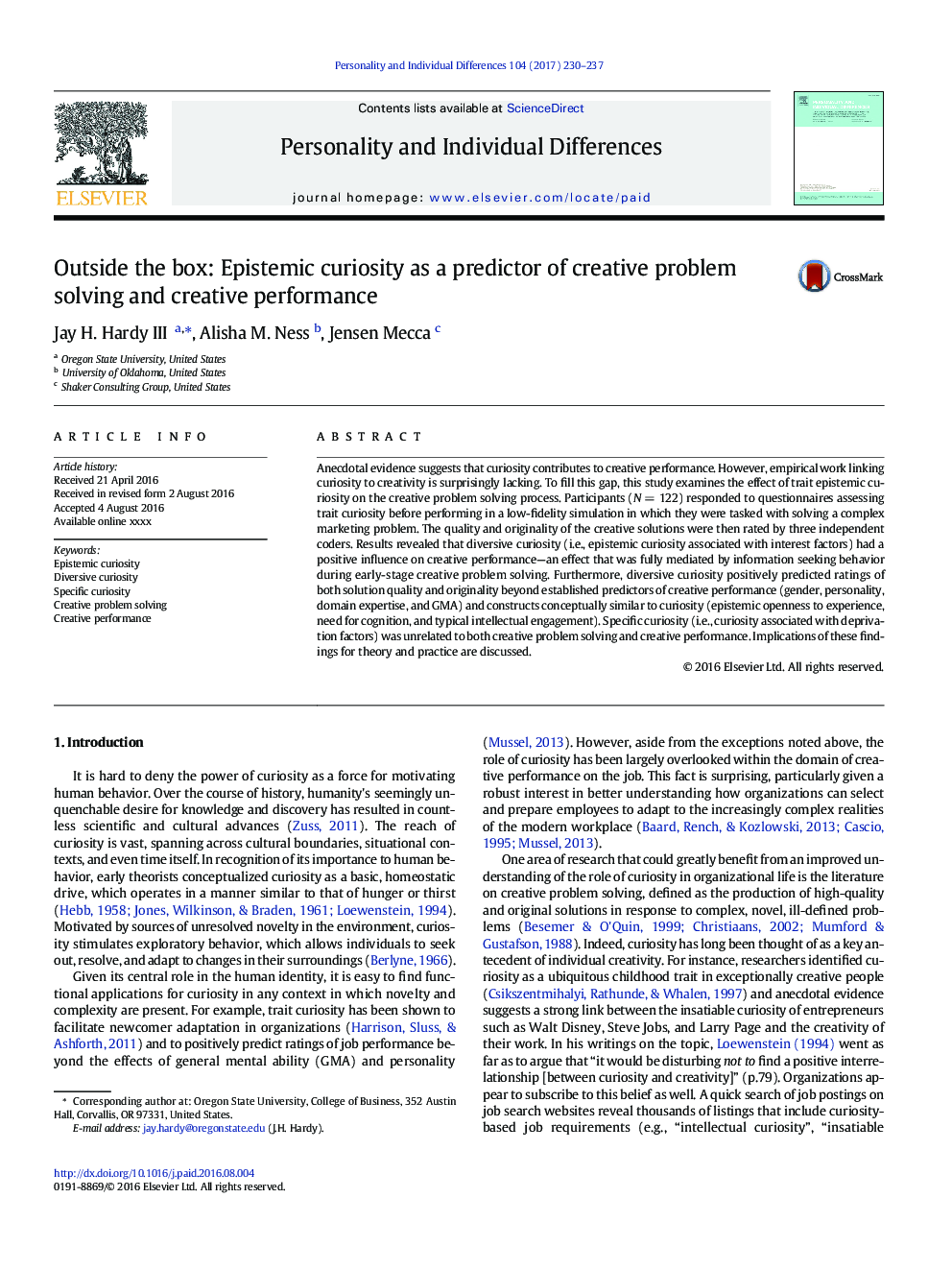| Article ID | Journal | Published Year | Pages | File Type |
|---|---|---|---|---|
| 7249479 | Personality and Individual Differences | 2017 | 8 Pages |
Abstract
Anecdotal evidence suggests that curiosity contributes to creative performance. However, empirical work linking curiosity to creativity is surprisingly lacking. To fill this gap, this study examines the effect of trait epistemic curiosity on the creative problem solving process. Participants (NÂ =Â 122) responded to questionnaires assessing trait curiosity before performing in a low-fidelity simulation in which they were tasked with solving a complex marketing problem. The quality and originality of the creative solutions were then rated by three independent coders. Results revealed that diversive curiosity (i.e., epistemic curiosity associated with interest factors) had a positive influence on creative performance-an effect that was fully mediated by information seeking behavior during early-stage creative problem solving. Furthermore, diversive curiosity positively predicted ratings of both solution quality and originality beyond established predictors of creative performance (gender, personality, domain expertise, and GMA) and constructs conceptually similar to curiosity (epistemic openness to experience, need for cognition, and typical intellectual engagement). Specific curiosity (i.e., curiosity associated with deprivation factors) was unrelated to both creative problem solving and creative performance. Implications of these findings for theory and practice are discussed.
Related Topics
Life Sciences
Neuroscience
Behavioral Neuroscience
Authors
Jay H. III, Alisha M. Ness, Jensen Mecca,
